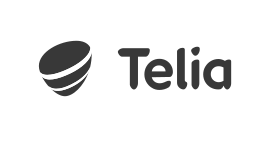The Digital Data Protection Act of India (DPDP Act 2023) is a significant step toward protecting customers from considerable digital malaise. This act aims to restrain businesses that process or share data indiscriminately beyond the original purpose of data collection, essentially providing peace of mind to customers as they go about their lives, and ensuring DPDP Compliance by businesses.
Read the main DPDPA Article here

It’s essential to distinguish between protecting private data (through means such as encryption and robust security layers) and creating a consent layer to ensure data minimization and lawful processing of personal data (the core purpose for which data is collected from data principals). This guide is tailored to address the specific concerns of compliance managers, offering a step-by-step approach to navigating the complexities of collecting informed consent and ensuring DPDP compliance with India’s data protection laws.
Understanding the DPDP Act 2023
A solid grasp of the DPDP Act 2023 is a good starting point. At a high level, the act emphasizes the need to balance protecting personal information with processing personal data for lawful purposes. This balance, although challenging, is critical to DPDP compliance. The DPDP law ensures that the customer remains the lawful owner of their own data and that companies (or fiduciaries) can only use and process such data with clear and informed consent from the customer. Once the stated purpose is completed, the data must no longer be used or processed, easier said than done.
Data Protection Framework
Establishing a Data Privacy Framework based on the existing IT Act 2000 is a good initial step for DPDP compliance, but it’s not sufficient on its own. You need to assess and address gaps to ensure the framework comprehensively covers several key areas:
- Data Privacy Policy
- Data Principal Rights
- Consent Management
- Notices (Notice to inform data principals of data processing and their rights)
- Data Retention and Deletion Policy
- Change Request Policy
- Grievance Redressal Policy and Procedure
- Third-Party Data Processing Policy
- Data Minimization Policy
- Incident Management Policy
Understanding your current state and where you need to be allows you to plan a clear route and method to achieve compliance within the necessary timeframe.
Step-by-Step Compliance Guide
- Assess Current Data Practices
- Conduct a thorough audit of current data practices, including data collection, processing, storage, and sharing activities.
- Identify gaps in existing data protection measures compared to DPDP requirements.
- Develop a Compliance Roadmap
- Create a detailed roadmap to address identified gaps and ensure full compliance with DPDP.
- Prioritize actions based on risk and impact.
- Implement Data Privacy Policies
- Develop and implement comprehensive data privacy policies covering all aspects outlined in the DPDP Act.
- Ensure these policies are communicated and understood by all employees and stakeholders.
- Data Inventory and Classification
- Maintain a detailed inventory of all personal data processed by your organization.
- Classify data based on sensitivity and the level of protection required.
- Obtain Informed Consent
- Implement a consent management system that allows customers to easily provide, withdraw, and manage their consent.
- Ensure consent forms are clear, concise, and available in multiple languages.
- Data Minimization and Purpose Limitation
- Collect only the data necessary for the specified purpose.
- Ensure data is used only for the purposes stated during collection.
- Secure Data Processing
- Implement robust security measures to protect personal data from unauthorized access, disclosure, alteration, or destruction.
- Regularly update and test security protocols.
- Training and Awareness
- Conduct regular training sessions for employees on data protection principles and DPDP compliance.
- Foster a culture of data privacy and security within the organization.
- Monitor and Review Compliance
- Regularly monitor data processing activities to ensure ongoing compliance with DPDP.
- Conduct periodic reviews and audits to identify and address any new risks or compliance issues.
- Respond to Data Breaches
- Develop and implement an incident management policy to quickly and effectively respond to data breaches.
- Ensure timely reporting of breaches to the relevant authorities and affected individuals as required by DPDP.
Ensuring Continuous DPDP Compliance
Achieving DPDP compliance is not a one-time effort but an ongoing process. Regularly update your data protection policies and practices to reflect changes in technology, business processes, and legal requirements. Stay informed about updates to the DPDP Act and other relevant regulations to ensure continuous compliance.
Steps in DPDP Compliance
Leveraging technology can significantly enhance your ability to comply with DPDP requirements across the there core areas of DPDP Compliance namely Data Discovery, Data Registry and Data Residency.
- Data Discovery
- Discover and classify personal data across your IT landscape.
- Ensure accurate data mapping and compliance with data minimization principles.
- Ensure data collected is only meant for the purpose collected.
- Data Registry
- Streamline the process of obtaining, managing, and tracking customer consent.
- Provide a simple interface for customers to manage their preferences.
- Send notices to customers of data processing where consent has been given prior to the commencement of DPDP Act
- Data Residency
- Monitor security events in real-time to detect and respond to potential threats.
- Ensure continuous protection of personal data.
- Protect personal data through encryption and anonymization techniques.
- Ensure data is secure both in transit and at rest.
Compliance with the Digital Data Protection Act of India (DPDP Act 2023) is crucial for businesses handling personal data. By following this step-by-step guide, you can ensure that your organization not only meets legal requirements but also builds trust with customers through transparent and responsible data practices. Start with a thorough understanding of the DPDP Act, develop a robust data privacy framework, and implement the necessary policies, systems, and technologies. Regular monitoring and continuous improvement will help maintain compliance and protect personal data in the long term.
By prioritizing DPDP compliance, you can safeguard your customers’ data, enhance your organization’s reputation, and avoid potential legal and financial penalties. Embrace this opportunity to strengthen your data protection practices and foster a culture of privacy and security within your organization.
Review your DPDP readiness and get a demo of Atlas DPDP Solution
About
We are your friends at frslabs
FRSLABS is an award-winning research and development company specialising in customer onboarding, identity verification and fraud prevention solutions for businesses. Whether you are a big bank, insurance, telco or a small investment broker, we help you onboard and verify your customers with greater flexibility, compliance and reliability.
Built for you, not for investors
We do what is right for you (and only you) at scale. Nothing is off-limits for us when it comes to innovation, a culture best reflected in the array of patents we have filed. We want to be your trusted partner, to build the solutions you need, and to succeed when you succeed.
Priced for success
We are driven by our mission to touch a billion lives with our tools and not beholden by venture capital or mindless competition. We therefore have the freedom to do the right thing, and price our products sensibly, keeping your success and our staff in mind. We succeed only when you succeed.
Supported by humans
Whatever it takes, we are here to help you succeed with our products and services. For a start, you get to talk to a human for help, not bots, to figure things out one-to-one. Whatever your needs, however trivial or complex it may seem, we have you covered.


























